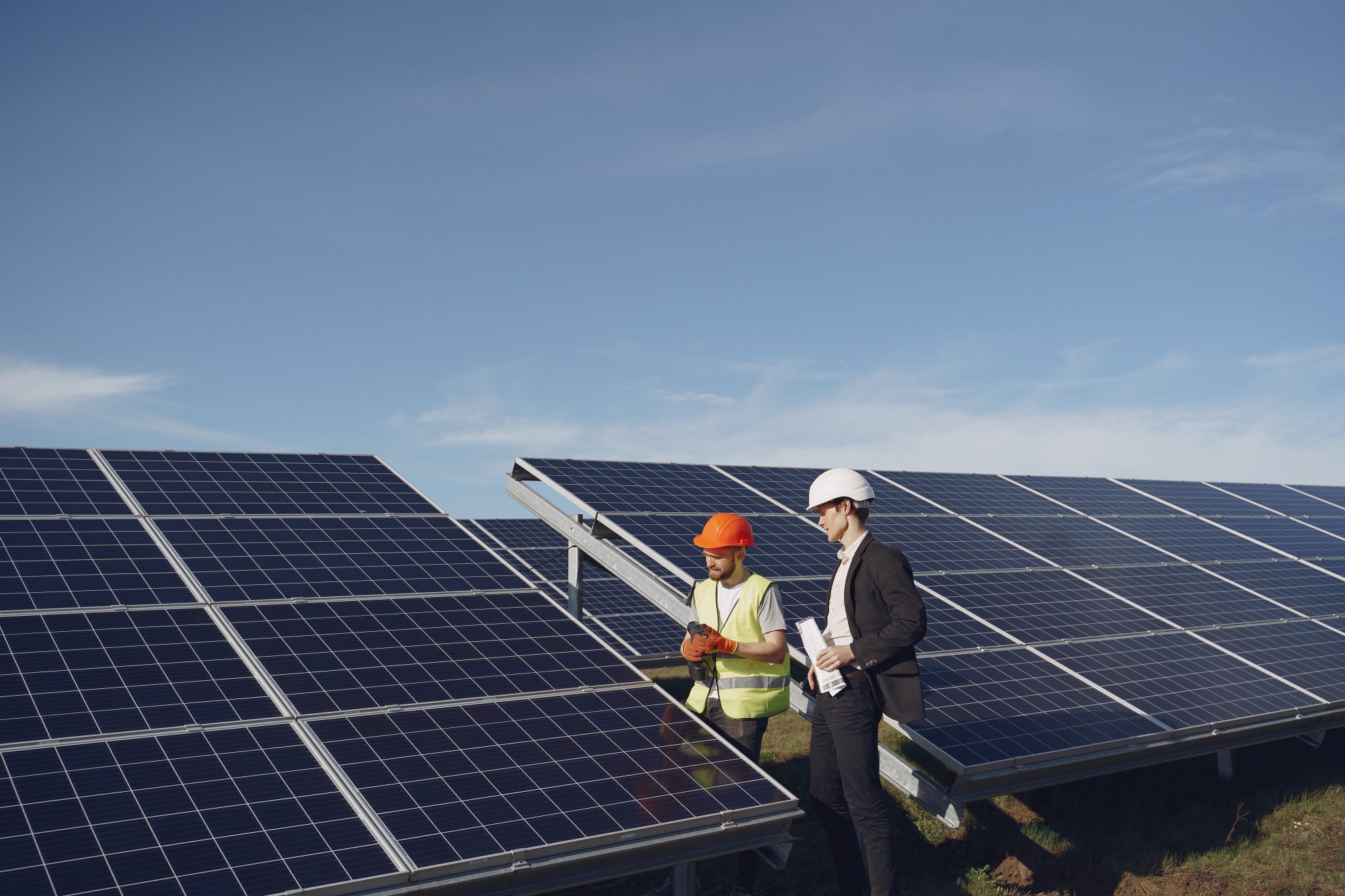Solar energy has become an increasingly popular choice for homeowners looking to reduce their carbon footprint and save on energy bills. But, how long do solar panels last? In this guide, we’ll explore the lifespan of solar panels, factors that can affect their longevity, and tips to extend their life, ensuring you get the most out of your investment in renewable energy.
Key Takeaways
- Solar panels have a lifespan of 20-30 years, depending on quality and maintenance.
- Factors such as installation quality, climate conditions and regular cleaning can extend their longevity.
- Choosing certified high-quality solar panels with experienced installers is essential to maximize performance over time.
The Lifespan of Solar Panels: What to Expect
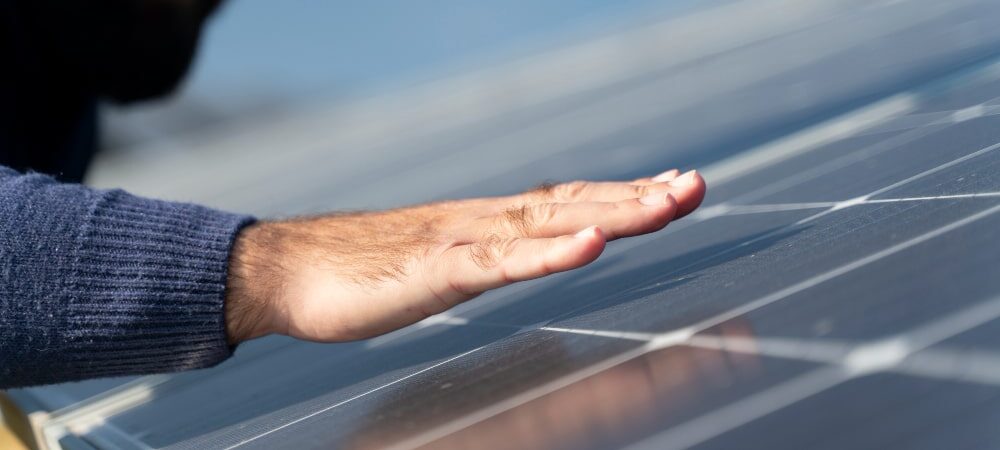
The average lifespan of solar panels is 25-30 years, making them a long-term investment for homeowners interested in solar power. However, their longevity can be influenced by various factors, such as:
- Product quality
- Installation quality
- Regular maintenance
- Climate
With these factors in mind, knowing how long solar panels last is essential to make an informed decision.
Standard warranties and guarantees are also available to protect your investment and ensure that your solar panels continue saving on energy bills.
Understanding the impact of quality, manufacturing and degradation rate on the lifespan of your solar panels is key to maximizing the benefits of your solar power system. We’ll explore these factors to comprehend their influence on your solar panels’ life expectancy.
Quality and Manufacturing
Their quality and manufacturing significantly influence the lifespan of solar panels. Tier One solar panel manufacturers are known for producing higher-quality panels essential for successful solar panel installations. These manufacturers utilize superior-grade materials and components, resulting in more reliable and durable products than other manufacturers. Some renowned solar panels for their exceptional efficiency and superior performance include SunPower Maxeon 6 AC, Jinko Tiger Neo 420W, and EverVolt HK Black Series, which contribute to a longer solar panel life expectancy.
However, the longevity of solar panels isn’t solely determined by quality and manufacturing. Over time, solar panels degrade, and this degradation rate plays a significant role in their overall lifespan.
Degradation Rate
The degradation rate of solar panels refers to the gradual decline in performance due to various factors. Solar panels degrade by an average of 0.5 % per year. This rate is consistent over a long period. Causes of solar panel degradation include:
- Thermal cycling
- Damp heat
- Humidity freeze
- Ultraviolet (UV) exposure
These factors can also affect the lifespan of other energy storage components like lead-acid batteries.
After 25 years of use, a solar panel’s efficiency is expected to be around 87.5% of its original capacity, similar to the lifespan of lithium-ion batteries used in solar energy storage systems. The degradation rate directly affects solar panel lifespan, resulting in a gradual decline in performance and efficiency over time, which can also impact the overall performance of a solar battery storage system.
Factors Affecting Solar Panel Lifespan
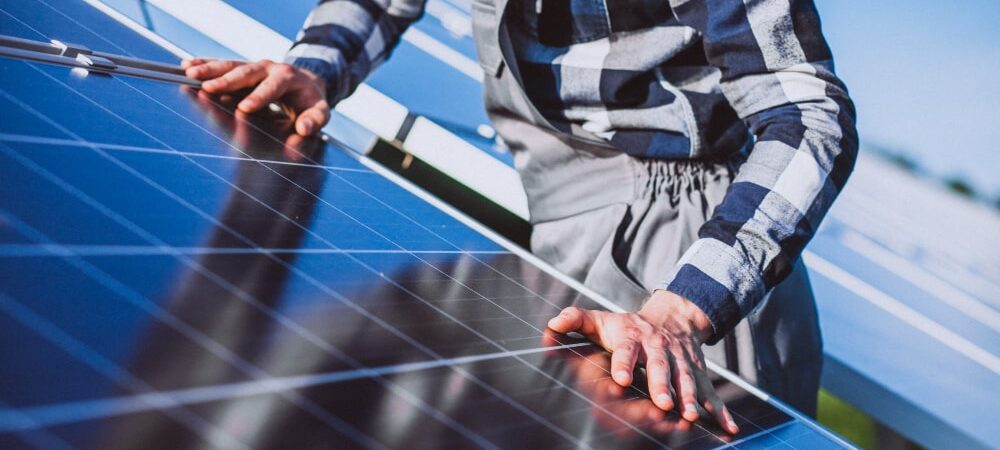
Besides quality and manufacturing, other aspects also influence the lifespan of solar panels. The longevity of solar panels can also be affected by factors like installation quality, climatic conditions, and regular maintenance, which are important considerations for the lifespan of a solar battery.
Comprehending these factors enables you to optimize your solar panels’ performance and longevity. We’ll examine these factors to understand their impact on your solar panels’ lifespan.
Installation Quality
High-quality installation by experienced professionals ensures optimal solar panel performance and longevity. Inadequate installation and wiring of solar panels may lead to quicker degradation, ultimately shortening their lifespan. Installation quality can also influence the durability of solar panels when exposed to various weather conditions.
For top-quality installation, opt for premium panels and installers, maintain cleanliness, and arrange regular inspections and servicing. This way, you can maximize the lifespan of your solar panels and enjoy the benefits of renewable energy for years to come.
Climate and Environmental Conditions
Climate and environmental conditions, such as:
- high temperatures
- frost
- humidity
- strong winds
It can adversely affect the surface of solar panels. For instance, high temperatures can lead to overheating of solar cells, resulting in decreased efficiency; frost can cause cracks, and humidity can lead to corrosion. Strong winds can also cause physical damage to the solar panels.
The durability of solar panels, the quality of installation, and maintenance and upkeep can all impact the lifespan of solar panels in different climates. Regular cleaning, periodic inspections and servicing, and selecting premium panels and installers, can help prolong your solar panels’ life.
Maintenance and Upkeep
Consistent maintenance is vital for your solar panels to reach their projected lifespan. Failing to clean and maintain solar panels regularly can lead to a decrease in their lifespan.
On the other hand, regular maintenance and upkeep of solar panels can extend their lifespan and ensure optimal performance. By maintaining cleanliness, conducting routine inspections, and ensuring proper servicing, you can prevent potential issues that may decrease the lifespan of your solar panels and keep them functioning efficiently for many years to come.
Tips to Extend Your Solar Panels’ Lifespan
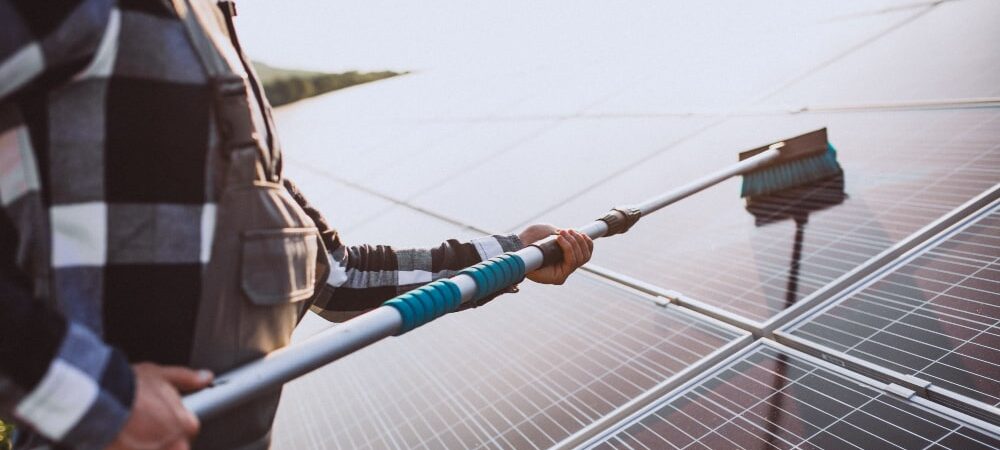
To maximize your solar panel investment and extend its lifespan, consider these tips: maintain cleanliness, schedule regular inspections and servicing, and opt for high-quality panels and installers.
We’ll delve into each of these tips to better understand how to enhance your solar panels’ longevity and efficiency.
Regular Cleaning
Cleaning solar panels regularly helps them absorb more sunlight and maintain efficiency, ultimately extending their lifespan. The frequency of cleaning solar panels varies depending on the location; some may require weekly cleanings, while others may only need to be cleaned every other month.
To clean your solar panels, you can use a soft rag or biodegradable soap, being careful not to damage the panel surface. Keeping your solar panels clean enables them to absorb more sunlight and remain at peak efficiency, thus helping to extend their lifespan.
Periodic Inspections and Servicing
Regular inspections and servicing can preemptively identify and resolve issues, prolonging your solar panels’ lifespan. Solar panels should be cleaned every six to twelve months using a soft rag or biodegradable soap to ensure optimal performance. Visual inspections should also be conducted to check for any physical damage, such as cracks or delamination.
Monitoring the performance of your solar panels is equally important, as a decline in efficiency may indicate the need for maintenance or replacement. By staying proactive with inspections and servicing, you can ensure that your solar panels continue to generate energy effectively and efficiently for years.
Choosing High-Quality Panels and Installers
Opting for high-quality panels and experienced installers can ensure a longer lifespan and better performance for your solar panel system. To ensure you are selecting high-quality panels and installers, look for panels certified by the Solar Rating and Certification Corporation (SRCC) and installers certified by the North American Board of Certified Energy Practitioners (NABCEP).
By choosing high-quality panels and experienced installers, you can guarantee a longer operational life and enhanced performance of your solar panels, making renewable energy an increasingly attractive option for your home. With proper solar panels installation, you can maximize the benefits of this sustainable energy source once your solar panels are installed.
Warranty and Guarantees on Solar Panels
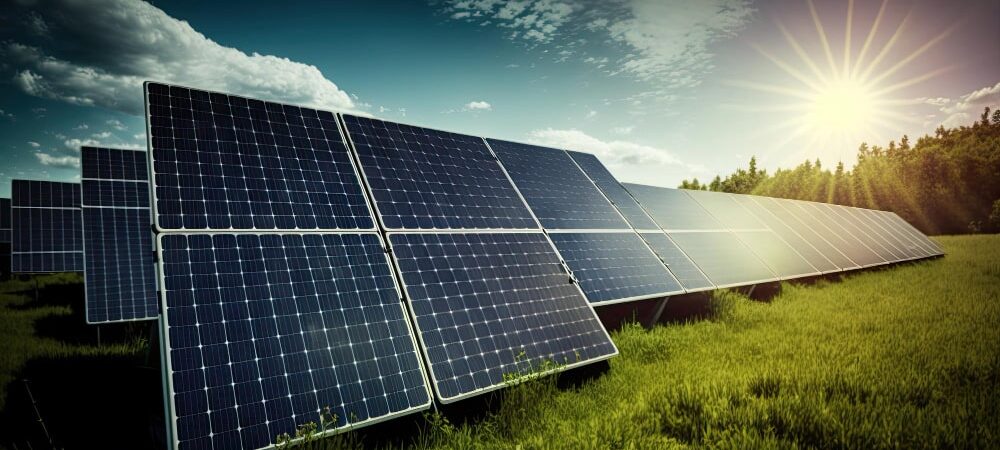
Warranties and guarantees on solar panels provide protection and assurance of reliability and longevity, with extended warranties offered by reputable manufacturers. These warranties and guarantees can offer peace of mind, ensuring that your investment in renewable energy continues to save on energy bills for years to come.
The most common warranties and guarantees offered on solar panels include a 25-year limited power warranty, with ten years at 90% power output and 25 years at 80% power output, and a workmanship and materials warranty of one or two years.
Understanding the available warranties and guarantees for your solar panels helps you make a wise, long-term investment.
When to Replace Solar Panels
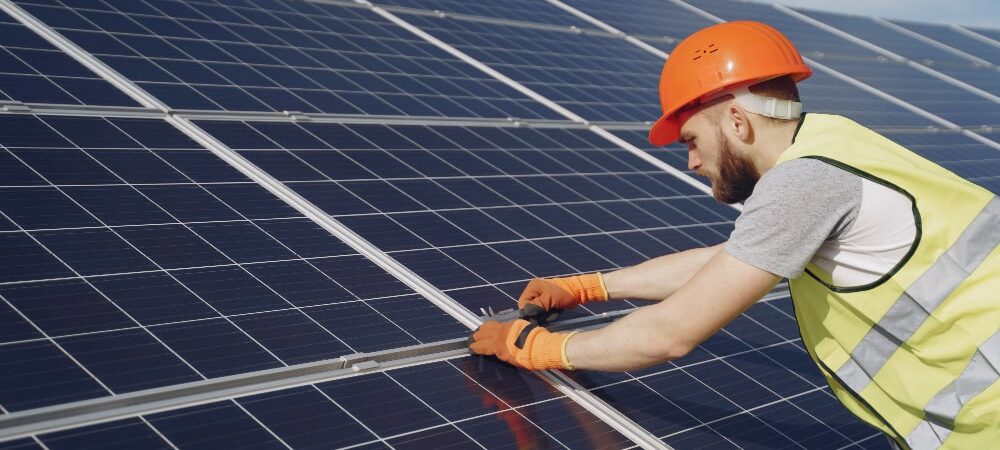
Solar panels should be replaced when their efficiency significantly decreases or they no longer provide sufficient energy savings, typically after 25-30 years. Due to the natural degradation rate of solar panels, they will inevitably lose their efficiency over time. In such cases, replacement of the solar panels may be necessary to continue enjoying free green energy in your home.
Solar panels should be replaced when their efficiency significantly declines, or they fail to provide adequate energy savings, typically after 25-30 years. Timely replacement of your solar panels ensures the continued generation of clean, renewable energy for your home.
Solar Panels vs. Solar Batteries: Comparing Lifespans
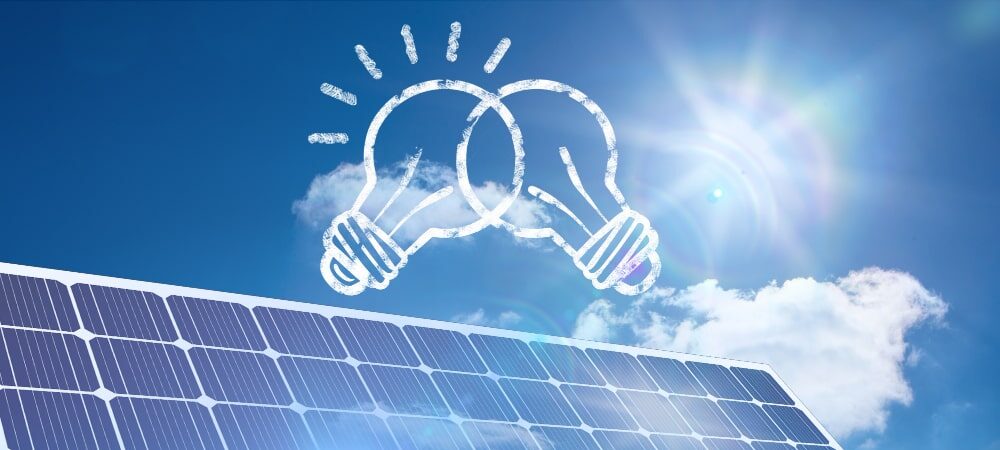
While solar panels are utilized to produce electricity from the sun’s rays, solar batteries are employed to store surplus solar energy. Solar panels typically have a longer lifespan, ranging from 20-30 years, as opposed to solar batteries, which have an estimated lifespan of 5-15 years, making them a more viable long-term investment.
The longevity of both solar panels and solar batteries is impacted by factors such as the quality of installation, climate and environmental conditions, and maintenance and upkeep. Regular cleaning, periodic inspections and servicing are recommended to ensure the maximum lifespan of both solar panels and solar batteries, and selecting high-quality panels and installers.
Awareness of the lifespan differences between solar panels and batteries aids in making informed decisions about your solar power system, enabling you to choose the best renewable energy solution for your home.
The Future of Solar Panel Technology
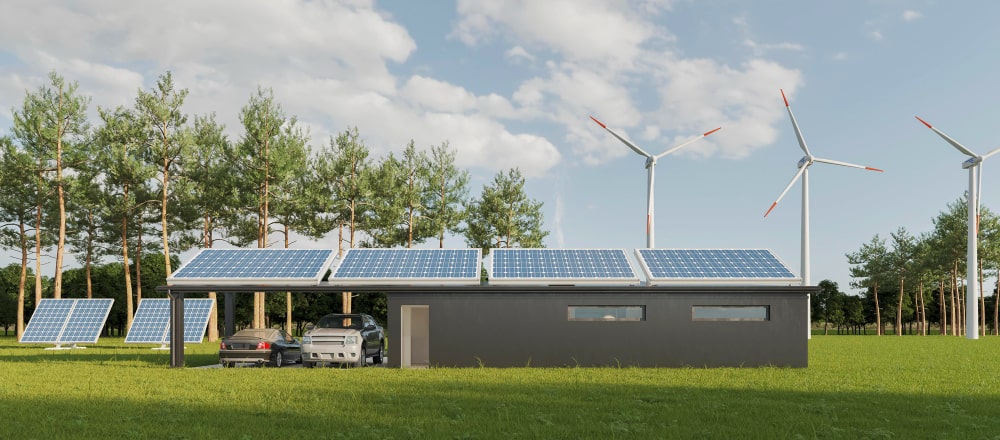
Emerging advancements in solar panel technology could enhance efficiency, durability, and lifespan, rendering solar energy a more appealing option for homeowners. Potential developments in solar panel technology may include utilising improved materials, enhanced manufacturing processes, and more efficient designs.
As solar panel technology advances, homeowners can expect to see even greater benefits from their solar power systems, including reduced energy bills, a smaller carbon footprint, and the potential for a more sustainable future.
Summary
In conclusion, solar panels are a long-lasting and effective solution for harnessing renewable energy, with an average lifespan of 25-30 years. By understanding the factors affecting their longevity, such as quality and manufacturing, installation, and maintenance, you can ensure that your solar panels remain efficient and reliable for years. As solar panel technology advances, the future of solar energy looks bright, offering homeowners an increasingly attractive and eco-friendly option for powering their homes.
Frequently Asked Questions
What happens after 25 years of solar panels?
Solar panels can last up to 25-30 years, with very little loss in efficiency year by year. After this period, solar panels will experience a gradual decrease in efficiency of about 12-15%.
How efficient will solar panels be in 10 years?
Solar panels are expected to remain highly efficient over the next ten years, with only an 8% drop in power production.
Do solar panels need maintenance?
Solar panels generally require very little maintenance, needing only a light periodic cleaning to ensure they are not blocked from the sun by debris and obstacles. An annual inspection by a solar specialist might also be necessary for optimal performance.
How often do solar panels need to be cleaned?
It’s generally recommended to clean your solar panels at least once a year, typically at the start of spring. This helps ensure they get the most out of their performance during the warmer seasons.
How long do solar batteries hold charge?
Solar batteries typically last up to five days on a single charge and have an average lifespan of around 20 years.
